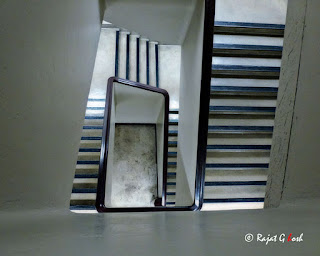
Video responds better in low light, while film works better in and more forgiving while overexposed.
Contrast can be controlled at various levels
At camera level
Choice of film stock
Lighting style
Production design
Filters on camera
Digital camera setting (not raw)
Pan flasher
At lab level by:
Pre or post flashing
Push / pull processing
Special lab process
Digital manipulation
Tiffin makes Dfx filters to show how the film will look after it is processed
Basically there is no color film; it just has 3 layers of dye- couplers
So there is:
Oxidation – reduction
Color couple
Color dye
Metallic silver
Bleaching
Fixing
Bleach bypass looks like it has pastel colors, and rich blacks this is when the positive has been bleach bypassed.
If Bleachbyass is done on the negative stage, the film has bright shiny whites, almost glowing kinds, and some colors are very saturated, like red.
E.g.: amorous peros the movie.
Cross processing gives more color shift , n higher contrast.
Timing: is process of evaluating the negative scene by scene, and making the color and density adjustment in order to strike a good print.
It established printer time based on RGB values; on a 50-point scale, where 8 points equal one stop of light.
If perfect it should read: 30 - 30 - 30
Printing up (brightens) is a low number so needs to be printed up
Printing down (dark) is a higher number
Higher the number: its overexposed
Lower the number it is underexposed.
Colors and density must always balance between the 3 numbers L 30 – 30 – 30
In medicine color brightness and contrast can be manipulated more accurately
Usually a feature needs approx. 12000 feet of stock
Sleepy hollow had bleach bypass at positive stage
Amores peros had bleach bypass at negative stage
Black hawk down
Amelia
and house of flying daggers had major Di to saturate colors
No comments:
Post a Comment